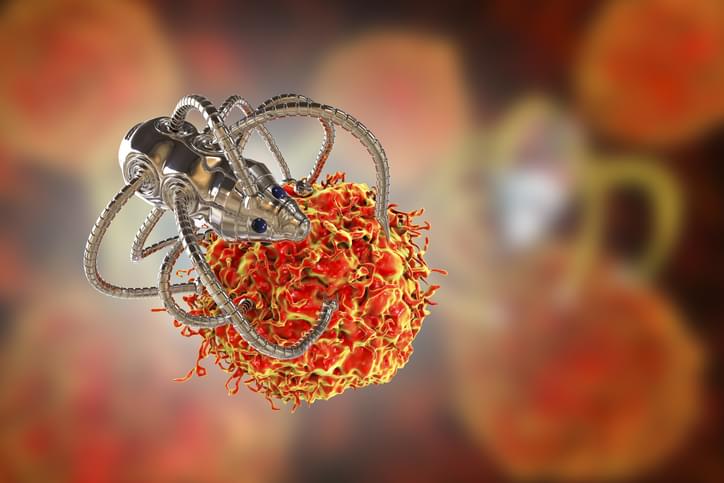A tiny robot which can travel deep into the lungs to detect and treat the first signs of cancer has been developed by researchers at the University of Leeds. The ultra-soft tentacle, which measures just two millimeters in diameter, and is controlled by magnets, can reach some of the smallest bronchial tubes and could transform the treatment of lung cancer. The researchers tested the magnetic tentacle robot on the lungs of a cadaver and found that it can travel 37 percent deeper than the standard equipment and leads to less tissue damage. It paves the way for a more accurate, tailored, and far less invasive approach to treatment.
The work is published in Nature Engineering Communications in the paper, “Magnetic personalized tentacles for targeted photothermal cancer therapy in peripheral lungs.”
“This new approach has the advantage of being specific to the anatomy, softer than the anatomy and fully-shape controllable via magnetics,” notes Pietro Valdastri, PhD, director of the Science and Technologies Of Robotics in Medicine (STORM) Lab at the University of Leeds. “These three main features have the potential to revolutionize navigation inside the body.”
